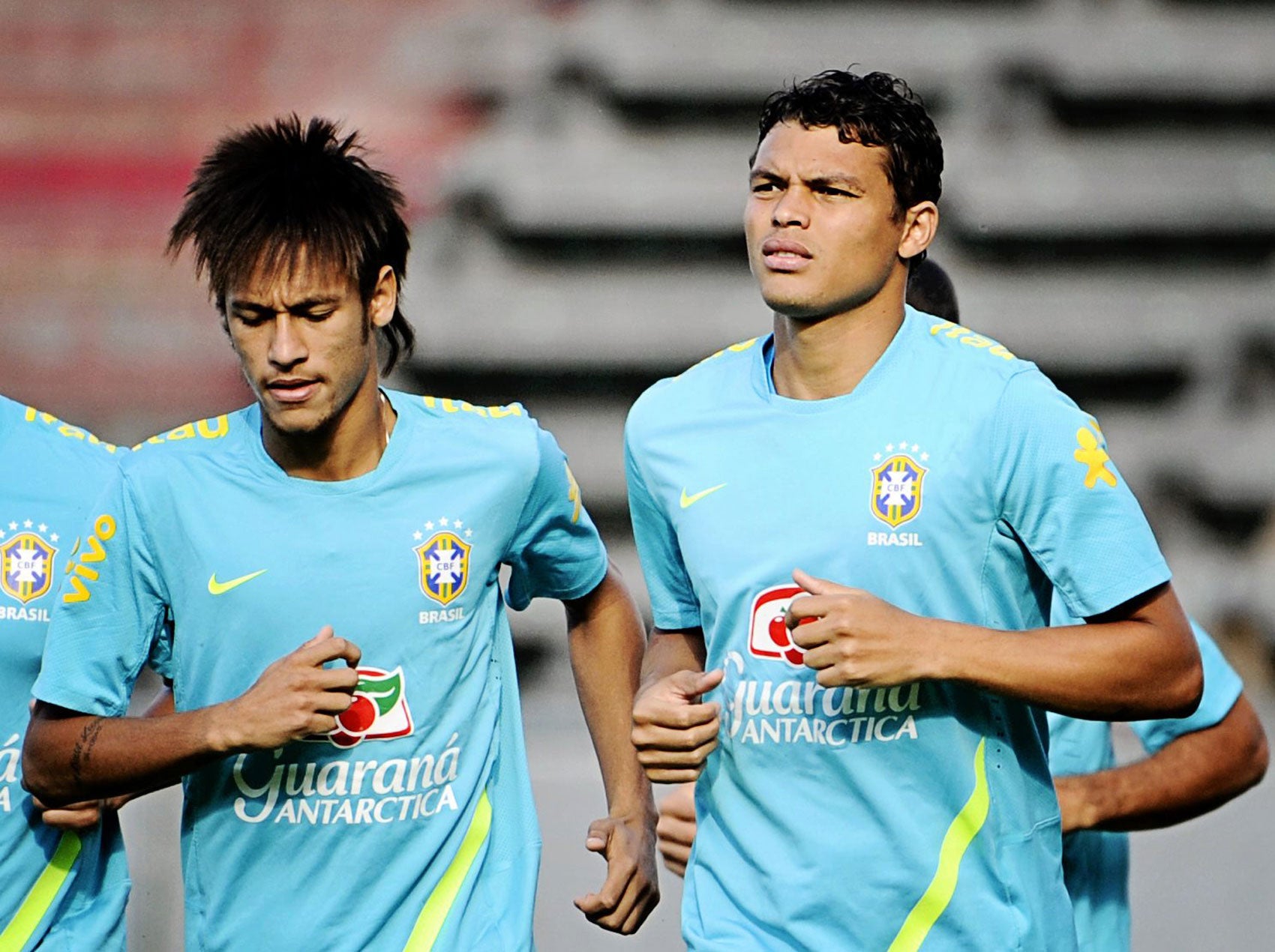England v Brazil: Win the World Cup? Not a hope, say Brazilian fans

Your support helps us to tell the story
From reproductive rights to climate change to Big Tech, The Independent is on the ground when the story is developing. Whether it's investigating the financials of Elon Musk's pro-Trump PAC or producing our latest documentary, 'The A Word', which shines a light on the American women fighting for reproductive rights, we know how important it is to parse out the facts from the messaging.
At such a critical moment in US history, we need reporters on the ground. Your donation allows us to keep sending journalists to speak to both sides of the story.
The Independent is trusted by Americans across the entire political spectrum. And unlike many other quality news outlets, we choose not to lock Americans out of our reporting and analysis with paywalls. We believe quality journalism should be available to everyone, paid for by those who can afford it.
Your support makes all the difference.For the drinkers squatting around the big screen at the Rule 3 Bar in Goiania, slap in the middle of Brazil's mid-western agricultural heartland, the summer (or winter in these parts) of 2014 is viewed with a mixture of cautious optimism and trepidation.
Goiania, a thousand cultural and physical miles from the glitz of Rio de Janeiro and the Maracana, has been excluded from the World Cup carnival, with Cuiaba and Brasilia getting the nod as hosts on the landlocked side of this vast country.
But the city's position on Brazil's footballing periphery has not dimmed the Mundial enthusiasm of these fans, most of whom are glued to the Copa Libertadores quarter-final tie between Atletico Mineiro, from the neighbouring state of Minas Gerais, and Tijuana of Mexico.
Luciano Ferreira, a business administrator, intends to travel to as many World Cup games as he can. "I've already got my tickets for the Confederations Cup," he enthuses. He says the World Cup, despite not necessarily being a "priority" for a country which often lacks investment in basic needs such as education and health care, will be good for Brazil. "It will put us in the shop window. Get the world's attention."
He is less enthusiastic about the chances of on-field success under manager Luiz Felipe Scolari. "Scolari's time has passed," he says grimly. "We've got no chance against Spain or Germany or even Argentina." On uttering this last name, he looks as though he may spit in his beer.
Such footballing self-doubt is common enough in Brazil. After all, the current coach's international legend was born after the national side struggled so mightily in the run-up to the 2002 World Cup that the then coach, Emerson Leao, was sacked. Scolari was hired, and a year or so later Brazil were world champions.
There is a feeling that Scolari got the job this time around on the rather hopeful fancy that history might be repeated. With the team plummeting down the world rankings, and not having beaten a top international side in almost four years, the "struggling" part of the deal is clearly being fulfilled. Now it remains to be seen if Brazil can honour the second part of the bargain.
Marcos Grillo, an English teacher and former youth coach at Vila Nova, one of Goiania's three professional teams, does not share his neighbour's excitement about the tournament. "Maybe, but I'm not sure Brazil will be good for the World Cup," he answers when asked if the World Cup will be good for Brazil, the shambolic, albeit temporary, calling-off of today's friendly with England still fresh in his mind.
It is a standard enough theme in Brazil – that the hard work of good, honest Brazilians is being undone by corrupt power- brokers, from the Brazilian Football Federation's alarmingly toxic president, Jose Maria Marin, to the politicians in Brasilia. At least Marcos is more hopeful about Brazil's chances of footballing glory. "It'll be the hexa for sure," he says. Hexa is short for hexacampeao – sixth victory – which it would be for Brazil if they win the 2014 World Cup. But bravado may be playing a part.
"Bit of both," he says, when asked if such a boast is realistic prediction or romantic hope, then adds, grinning ruefully: "Mostly the latter, probably."
"Thiago Silva, Marcelo, Daniel Alves, Neymar... we've got the players," he says. "But the side lacks confidence. We're scared of the big teams now. It didn't use to be like that. Brazil needs to be Brazil again." There are nods of agreement from drinkers at nearby tables.
Luciano and Marcos agree on one thing. "We need him," Luciano says, stabbing a finger at the screen, where Ronaldinho is leading Atletico's Libertadores charge. "Neymar can't do it all on his own. It's too much pressure." Marcos nods.
Both believe another Atletico player, pipsqueak wide midfielder Bernard, could surprise. Marcos thinks PSG's Lucas will shine, while Luciano likes Internacional's Tottenham target Leandro Damiao.
The men turn their attention back to the screen, where Tijuana have won an injury-time penalty. If scored, Atletico, Brazil's last hope in this year's Libertadores, will be eliminated. It does not seem an encouraging World Cup omen. But goalkeeper Victor pulls off an astonishing save, somehow blocking the ball with a trailing leg while diving the wrong way.
Luciano and Marcos jump to their feet, cheering wildly, then hug. They are joined by two of the waiters. On screen, Victor, and half of the Atletico team, are in floods of happy tears.
Gloomy cynicism replaced by unbridled joy. It is the kind of moment that Marcos, Luciano and 195 million of their countrymen and women hope will be repeated in a year's time.
Join our commenting forum
Join thought-provoking conversations, follow other Independent readers and see their replies
Comments